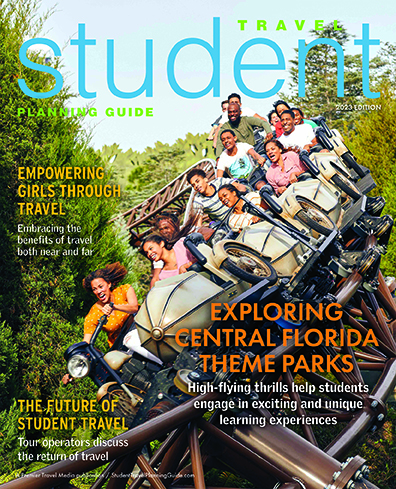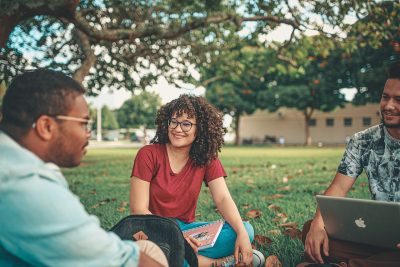Imagine a wheelchair-bound student arriving in his hotel room only to find that it does not offer the appropriate bathroom accommodations or the difficulties that a student with attention deficit disorder might face with watching a four-hour documentary at a public museum while 40 of his other classmates look on intently. Often times, students face these visible and invisible difficulties while on trips. Along with hindering their educational experiences, they might feel inferior for being unable to interact and complete tasks in the same way as their peers.
As a student planner, it is your job to ensure that none of your students have these negative experiences on a group trip. Each student should have the equal opportunity to learn and have fun, no matter how much assistance they may require. Since not all disabilities are physical ones, it is also your job to become as aware of each student’s conditions as possible.
How do I find out? What do I do after that? Without question, there are proper steps you can take to plan the best academic trips for your students. From the moment you dream up the travel itinerary to the moment you arrive back home, you’ll be prepared for every situation in between.
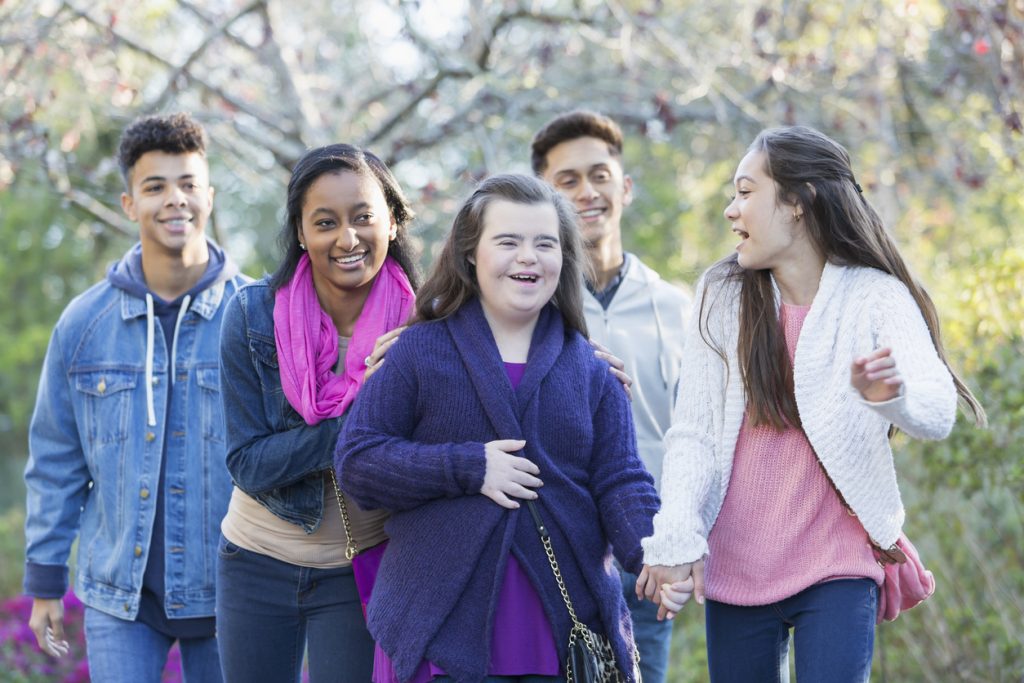
Be sure to ask special needs students and their parents what activities they’re comfortable participating in.
Get to Know Your Students
It’s likely that you’d already know if a student was battling a physical disability, such a broken arm or paralysis. In the case of physical limitations, you should gently and privately ask your student what kind of medical assistance they’d be comfortable receiving a few months before scheduling time away and activities with your group. This step is important because, above all, it is vital that you treat them how they’d want to be treated: just like everyone else. Even with a temporary or permanent injury, your pupil might not need any assistance at all. But just to be sure, it’s always safe to check.
Mental disabilities are sometimes harder to detect. Most teachers are notified about their students’ disabilities, but treatments are not always discussed. Student planners should survey their student bios and get to know which medications should be administered to them. In this instance, planners should also contact parents — especially if the children embarking on the trip are under 18 — to discuss the kinds of medications that their loved ones are required to take regularly. Planners should coordinate schedules with students so everyone is on the same page about dosages and how often medication should be taken. Chances are that your students are responsible and accustomed to their own medical routines, so it is likely that you will not have to provide extra assistance.
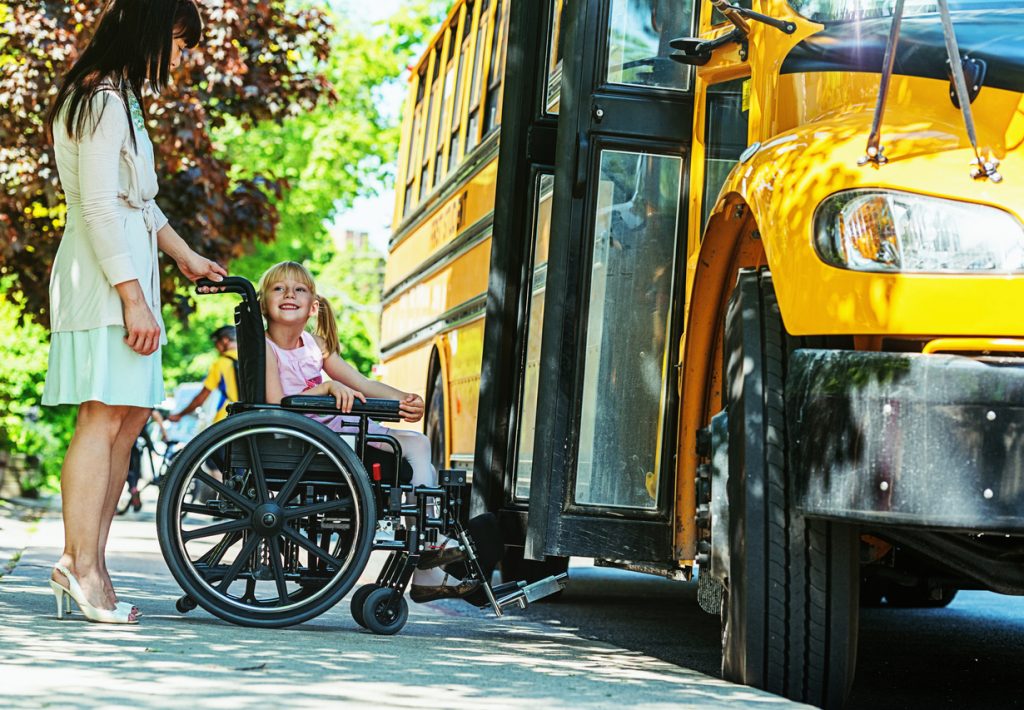
Ensure all transportation options are follow ADA specifications.
Check Traveling Accommodations
By Air: The necessary health restrictions and requirements that you’ve by now gathered, along with contact information and permission slips, will make flight planning a little easier. Of course, you’ll want to visit airline websites with affordable flying options, like Delta or Southwest Airlines. After finding affordable rates, call the airports and the airline to discuss the flight services that your student requires. Perhaps they need a seat close to a restroom, a specific seating arrangement or luggage assistance. Airlines need to be notified as early as possible in order to offer their full services.
By Car: If you’re driving to your desired destination, arrange for you or a chaperone to stay close to the student. However, you should naturally allow the student to interact with students, play games and engage in conversations. While you should pay keen attention to their needs, you should still treat everyone equally and provide assistance to other students as well.
Bargain with Boarding Options
With travel expenses and accommodations sorted out, you are now ready to search for places to stay. Chances are that hotels will offer you and your pupils a discount rate, but another way to further reduce costs is to group students into rooms. It is normal to place between two to four students in rooms. When deciding on room assignments, place a student with a physical disability in a room with an accessible bathroom and a telephone if they need it. They might also want to be near an elevator in case of an emergency. Unless the physical or mental health condition requires solitary living arrangements, group the student with at least one other one of their peers. It will be helpful to have an additional buddy who can also provide immediate assistance.
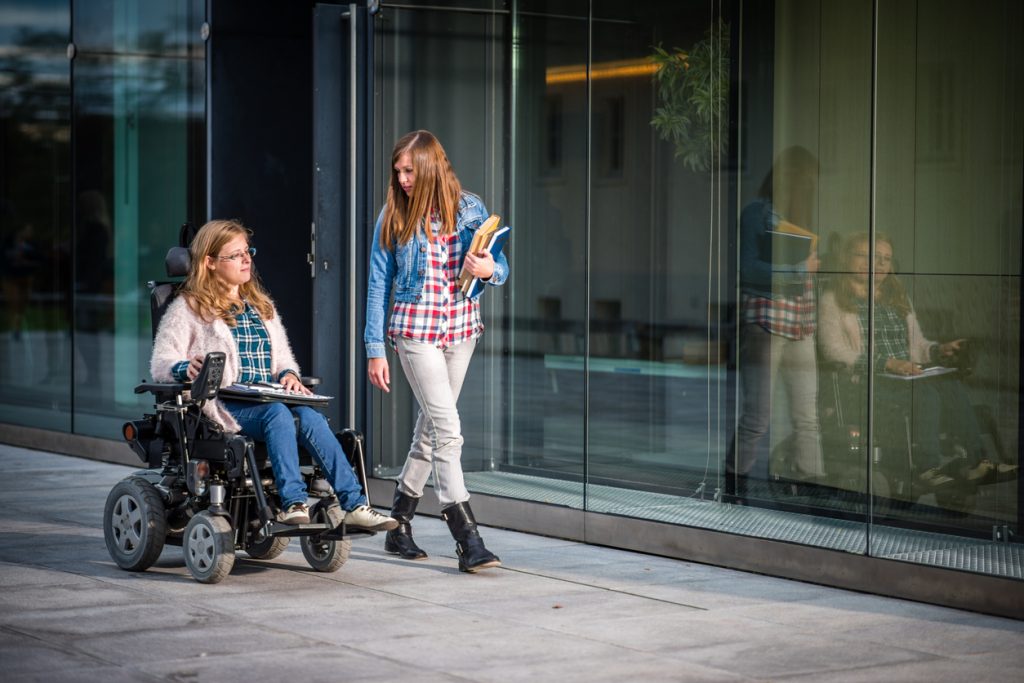
Ensure the student does not feel isolated and let them interact with their peers as they would during a normal school day.
Wherever you stay, don’t forget to strategically station chaperones in rooms of their own and to give every student the adults’ contact information and room numbers. If students are living along two hallways and there are two chaperones, then disperse yourself and the other chaperone so that each adult is living down one hallway. The same should be done if students are living on two or more floors – station a chaperone on each floor. Each adult should know where the nearest hospitals are how to get there.
Schedule Inclusive Activities
As the old saying goes, no one likes to be left behind. The worst thing a student planner can do is schedule a variety of activities that everyone – except for the student with a disability – can participate in. Each student should have the opportunity to participate in school activities on the trip. One way to get a sense of what students are interested in doing is to survey them for suggestions. This can be accomplished in class or online. Once you get some ideas, then you can have a more private conversation with your special needs student to ensure that they can comfortably engage in each activity. Here are some suggestions that student planners have used in the past to stimulate full student participation on trips:
- Reading groups
- Bus/boat tours
- Museum visits
- Site tours of historical attractions
- Tasting local cuisines
- Downtime for students to rejuvenate/explore in groups
- Team Jeopardy games
- Sending postcards home to family and friends
- Inviting native lecturers
- Classes at another school for students their age
- Carriage/horse tours
- Watching short documentaries
- Recording daily experiences in journals (laptop or notebook)
Distribute Detailed Attendance Forms
This step is absolutely mandatory for any student planner. What’s a student trip without the students? The student planner should distribute attendance forms with an itinerary field trip check-list, and exchange contact information at least one month in advance so each student can discuss the trip at home.
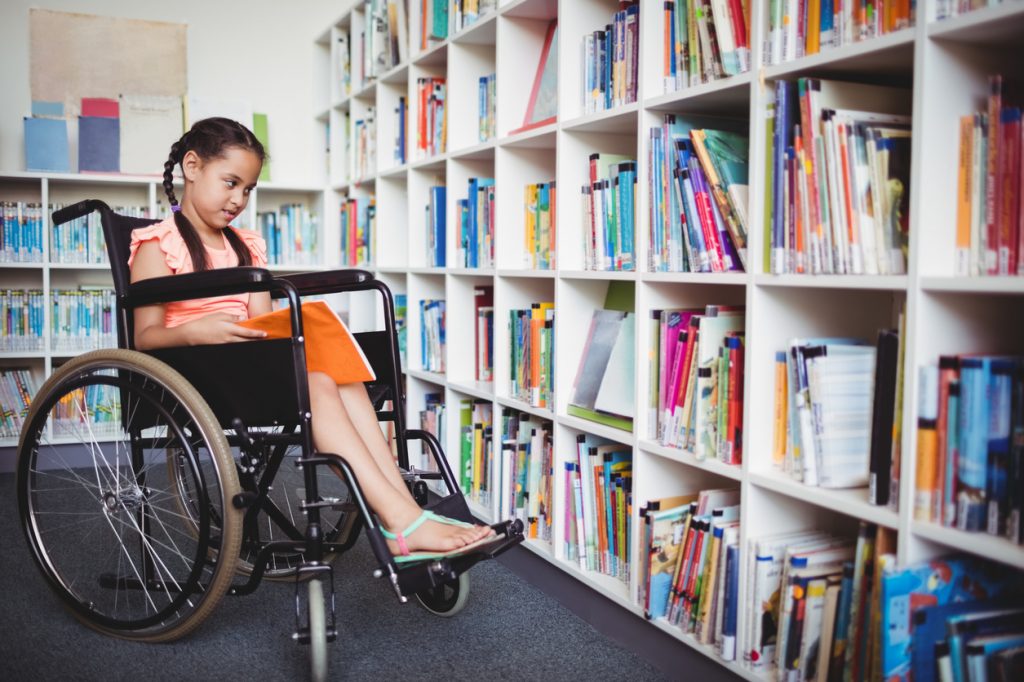
A comprehensive list of special needs, disabilities and allergies is essential when planning your student trip.
Along with these documents, the student planner should draft a list of each student’s name, parental/guardian contact information and allergy restrictions. This list should be sent out to each student so they can verify and correct any errors or add missing information. You should also schedule meetings with parents/guardians to answer questions and discuss concerns. Families have a lot to think about regarding their child’s safety, academic exposure and overall experience, so the more time they have to consider everything, the happier they’ll be.
Keep in Touch
During your stay, you’ll want to keep in touch with parents regarding students’ conditions. If a student maintains a periodic intake of medicine or shots, then encourage them to call home or message their parents/guardians to assure that they are on schedule. If the student is comfortable, then you may also reassure their family that they are safe and healthy.
In any emergency, parents should be notified immediately. All injured or ill students should be transported to the nearest hospital and treated accordingly. Another chaperone should remain at the hotel with the rest of the class. When the student has received treatment, then it is their choice to decide whether or not they would like to proceed with the rest of the activities you have scheduled for the group.
Gather Student and Parental Feedback
When you arrive home, ask for suggestions on how to improve future student trips. Considering feedback is a great way to ensure that study abroad trips are fun, valuable experiences for everyone attending. Parents should also weigh in on methods of communication, travel and lodging expenses and other general areas. Though every class you’ll plan for is different, similar concerns may arise in the future. Your students will appreciate your hard work and support.


